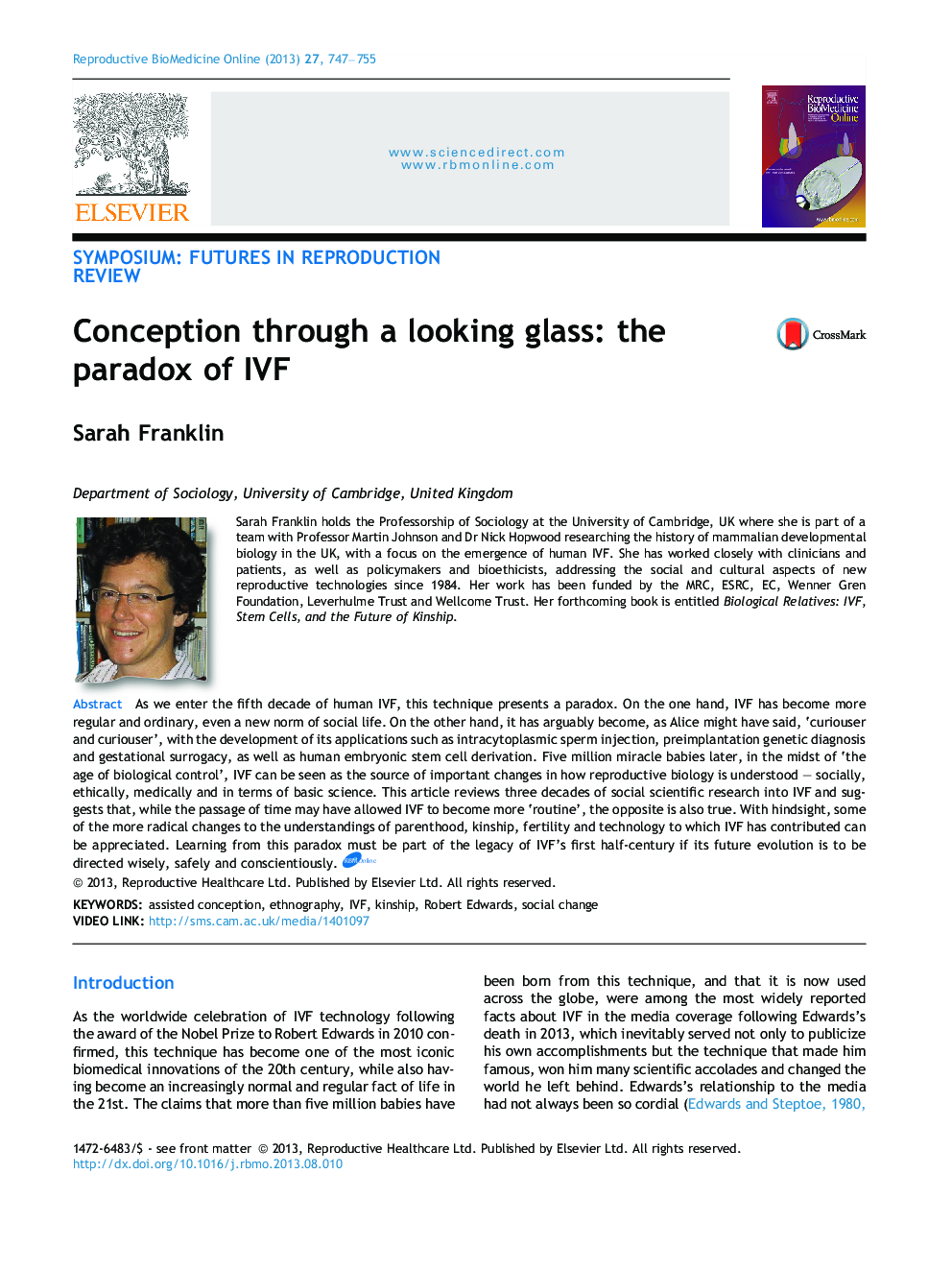| Article ID | Journal | Published Year | Pages | File Type |
|---|---|---|---|---|
| 3970230 | Reproductive BioMedicine Online | 2013 | 9 Pages |
As we enter the fifth decade of human IVF, this technique presents a paradox. On the one hand, IVF has become more regular and ordinary, even a new norm of social life. On the other hand, it has arguably become, as Alice might have said, ‘curiouser and curiouser’, with the development of its applications such as intracytoplasmic sperm injection, preimplantation genetic diagnosis and gestational surrogacy, as well as human embryonic stem cell derivation. Five million miracle babies later, in the midst of ‘the age of biological control’, IVF can be seen as the source of important changes in how reproductive biology is understood – socially, ethically, medically and in terms of basic science. This article reviews three decades of social scientific research into IVF and suggests that, while the passage of time may have allowed IVF to become more ‘routine’, the opposite is also true. With hindsight, some of the more radical changes to the understandings of parenthood, kinship, fertility and technology to which IVF has contributed can be appreciated. Learning from this paradox must be part of the legacy of IVF’s first half-century if its future evolution is to be directed wisely, safely and conscientiously.As we enter the fifth decade of human IVF, this technique is starting to present a paradox. On the one hand, IVF has become more regular and ordinary, even having become a new norm of social life. On the other hand, it has arguably become, as Alice might have said, ‘curiouser and curiouser’, with the development of its applications such as intracytoplasmic sperm injection, preimplantation genetic diagnosis and gestational surrogacy, as well as human embryonic stem cell derivation. Five million miracle babies later, in the midst of ‘the age of biological control’, IVF can be seen as the source of important changes in how reproductive biology is understood – not only socially and ethically, but medically and in terms of basic science. This article reviews three decades of social scientific research into IVF and suggests that, while the passage of time may have allowed IVF to become more ‘routine’, the opposite is also true: with the benefit of hindsight, some of the more radical changes to the understandings of parenthood, kinship, fertility and technology to which IVF has contributed can also be appreciated. Learning from this paradox must be part of the legacy of IVF’s first half century if its future evolution is to be directed wisely, safely and conscientiously.VIDEO LINK: http://sms.cam.ac.uk/media/1401097
